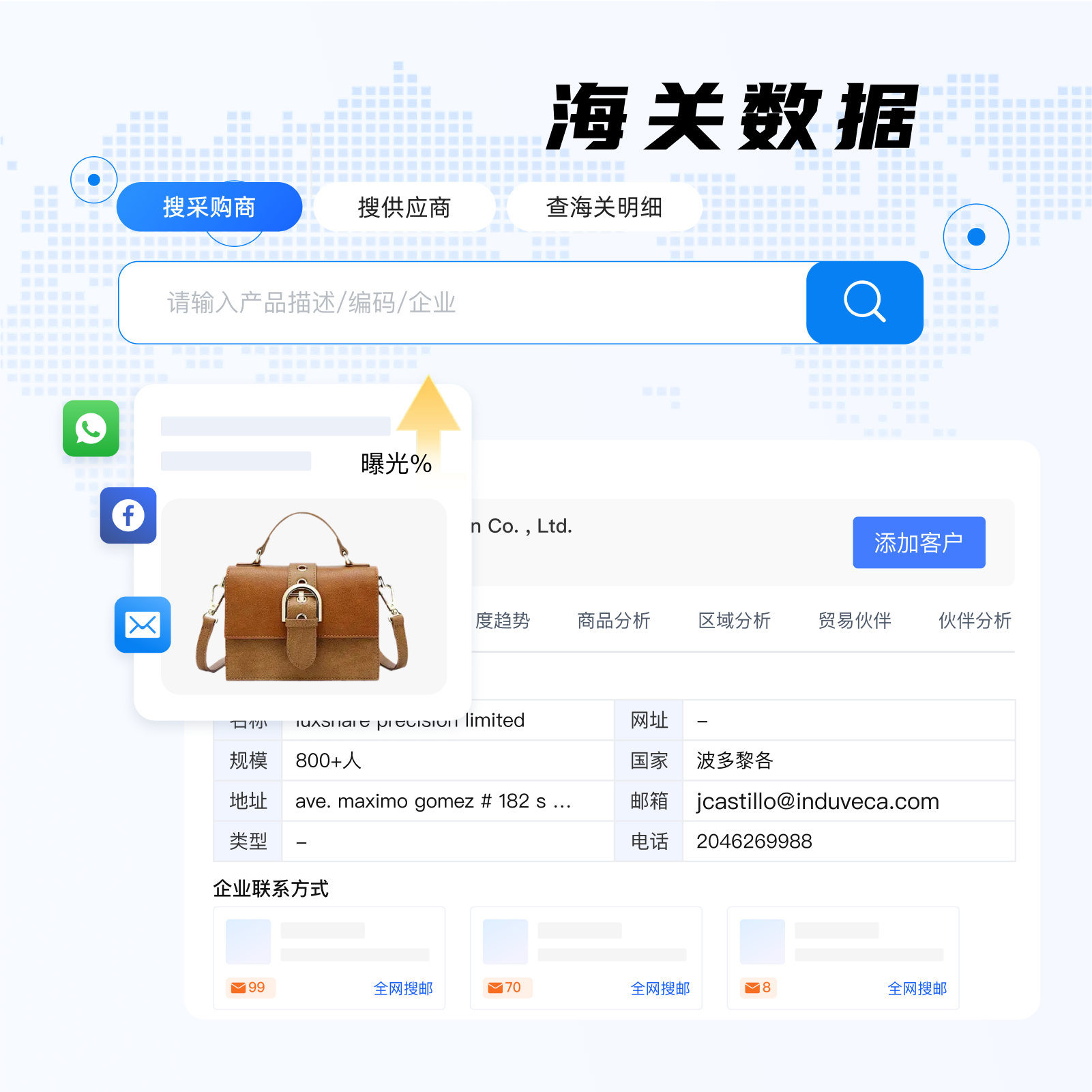 400-076-6558智领未来,外贸超级营销员
400-076-6558智领未来,外贸超级营销员
 400-076-6558智领未来,外贸超级营销员
400-076-6558智领未来,外贸超级营销员

For newcomers to the world of international trade, entering overseas markets can feel like navigating a maze without a map. Fortunately, customs data is one of the most powerful tools available today—a treasure trove of intelligence that reveals global import and export activity in real time. By leveraging this resource, new foreign trade traders can accelerate market access, find qualified buyers, and develop practical strategies with greater confidence. This guide will walk you through the entire process from obtaining customs data to using it for real business development.
Customs data contains detailed records of goods that cross borders, including product descriptions, quantities, values, shipment dates, and buyer/seller information. This data helps you understand who is importing, what is being imported, when, and where. For new exporters, this means you can discover active buyers in your target region, identify your competitors’ customers, and verify market demand without costly guesswork.
Multiple platforms compile global customs declaration data, but not all sources offer the same accuracy, timeliness, and depth. Look for services that offer comprehensive coverage of major importing countries such as the United States, EU countries, China, India, and Brazil. These sources should offer standardized data formats and filtering tools to help you pinpoint relevant shipments, products, and buyers. For example, the AB Customer Customs Data Platform aggregates verified import and export data updated daily, making it ideal for capturing market dynamics in real time.

Once you have the data, the next critical step is to determine which shipments and buyers fit your business scope. Focus on:
Using filters like import volume, transaction frequency, and declared value, you can prioritize high-potential leads instead of chasing unqualified contacts. For example, if you export footwear, target buyers who import more than 10,000 pairs per month from regions like the United States or Germany, as these markets have more stable consumption patterns.
Once you’ve pinpointed qualified buyers through customs records, use specific data points to develop a personalized outreach plan. Mentioning recent import volumes or shipping details during communication builds trust and demonstrates professionalism. This data-driven approach is more likely to increase your closing rate than a one-size-fits-all sales pitch.
Example: "We noticed that your company imported 5,000 units of product ABC last quarter. We offer a high-quality version of this product that can efficiently meet your increased demand..."
Market conditions and buyer behavior change rapidly, so continuously monitor customs data to adjust your target customer lists and offers. Track competitor shipments, predict their movements, identify emerging markets, and adjust your pricing or marketing strategies accordingly. Over time, this data intelligence will continuously optimize your export strategy and improve your negotiation power.
Buyers value suppliers who understand their business and market trends. Showing that your promotions are backed by customs import data demonstrates transparency and professionalism – building a chain of trust that is essential for long-term overseas partnerships. Customs data is also an unbiased source that reduces guesswork and strengthens your authority in negotiations.
| Key customs data indicators | Exporter's Purpose |
|---|---|
| Product Description | Identify specific buyer interests and tailor your offer |
| Name of exporter and importer | Find reliable customers and competitors for benchmarking |
| Shipment volume and frequency | Measure market demand trends over time |
| Declared Value | Evaluate pricing levels and profit potential |
With actionable customs data to back you up, opening up your first overseas market is not difficult. By identifying your ideal buyers, understanding market demands, and tracking trends, your export business will grow steadily and efficiently. Remember: success belongs to those who use data to make smart decisions instead of relying on guesswork.
Are you ready? Explore AB Customs Data - a comprehensive solution that provides accurate and up-to-date customs intelligence covering global markets.
Free Enquiry Now.png?x-oss-process=image/resize,h_100,m_lfit/format,webp)
.png?x-oss-process=image/resize,h_100,m_lfit/format,webp)

.png?x-oss-process=image/resize,h_100,m_lfit/format,webp)
.png?x-oss-process=image/resize,h_100,m_lfit/format,webp)
.png?x-oss-process=image/resize,h_100,m_lfit/format,webp)
.png?x-oss-process=image/resize,h_100,m_lfit/format,webp)
